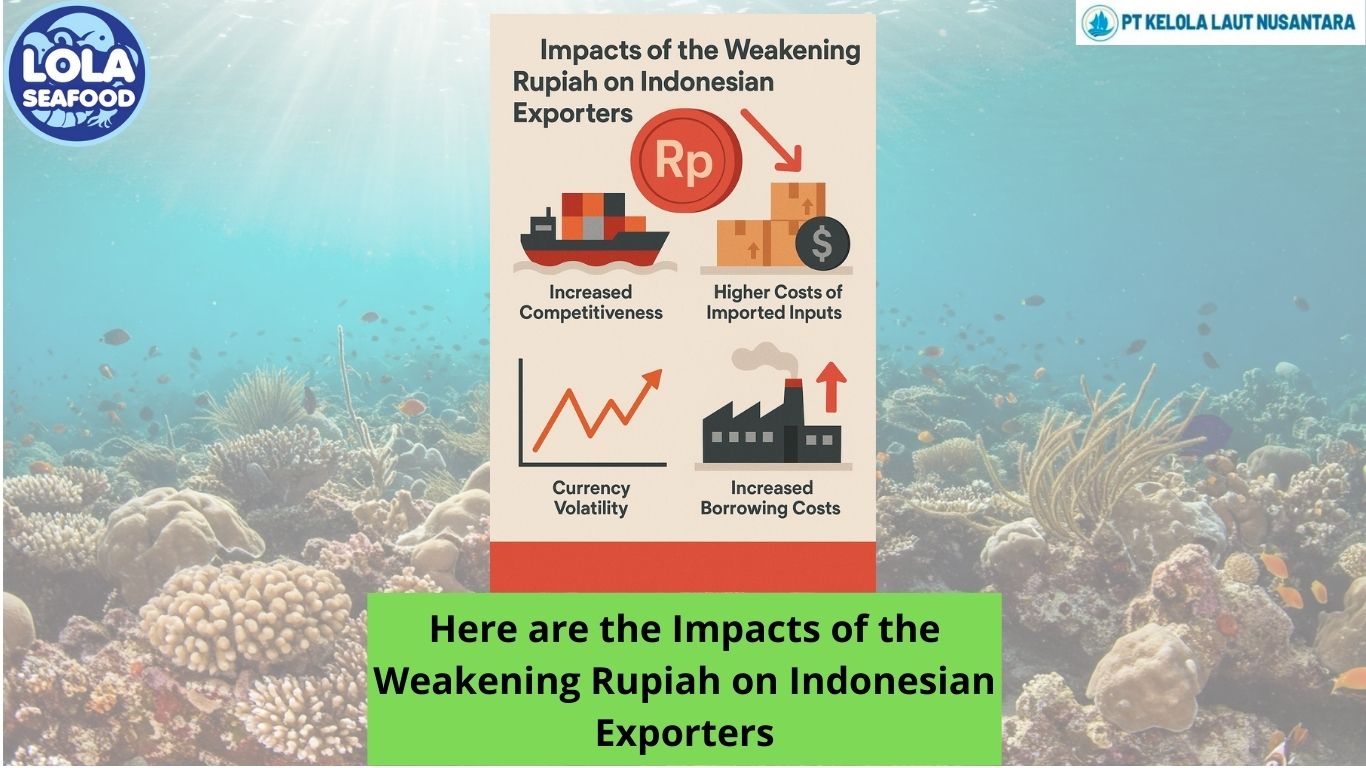This Is Why International Trade Affects The Rupiah Exchange Rate
By. Fajar - 11 Dec 2024.png)
kelolalaut.com International trade has a significant influence on the rupiah exchange rate, as it involves the flow of goods, services, and capital between countries. This influence can be seen from several perspectives, including:
- Demand and Supply of Currency (Foreign Exchange)
- Exports: When Indonesia exports goods and services to other countries, there is a demand for rupiah because the purchasing country needs to exchange its currency for rupiah to pay for the imported goods or services. Increased exports can boost demand for rupiah, potentially strengthening the rupiah exchange rate.
- Imports: Conversely, when Indonesia imports goods from abroad, it must exchange rupiah for foreign currency (e.g., US dollars). Increased imports raise demand for foreign currency, which may weaken the rupiah if demand for dollars exceeds demand for rupiah.
- Global Commodity Prices
Indonesia is a major producer of various commodities such as palm oil, coal, natural gas, and agricultural products. International trade is highly influenced by fluctuations in global commodity prices.- Rising Commodity Prices: If the prices of commodities exported by Indonesia increase in global markets, export revenues will rise, which can strengthen the rupiah.
- Falling Commodity Prices: Conversely, if commodity prices decline, Indonesia's export revenues decrease, which can put pressure on the rupiah exchange rate.
- Foreign Investment Flows
- Foreign Direct Investment (FDI): When foreign companies make direct investments in Indonesia, such as building factories or infrastructure projects, they need to exchange foreign currency for rupiah. Inflows of foreign investment can boost demand for rupiah and strengthen its exchange rate.
- Portfolio Investment: International trade also includes capital flows in the form of portfolio investments, such as foreign investors purchasing stocks and bonds. Increased foreign investment can support rupiah appreciation, while capital outflows can weaken the rupiah.
- Global Monetary Policies and International Economy
Monetary policies of major economies, such as the United States, which influence the value of the US dollar, also affect the rupiah exchange rate. For example:- US Interest Rate Hikes: If the Federal Reserve raises interest rates, funds may flow out of emerging markets, including Indonesia, as investors seek higher returns in the US. This can exert pressure on the rupiah.
- Global Recession: During a global recession or international economic crisis, demand for Indonesian goods and commodities may decline, reducing Indonesia's foreign exchange reserves and putting pressure on the rupiah exchange rate.
- Trade Balance
- Trade Balance Deficit: If Indonesia imports more goods than it exports, it experiences a trade balance deficit. This deficit can add pressure on the rupiah as more rupiah is needed to purchase foreign currencies.
- Trade Balance Surplus: Conversely, if Indonesia achieves a trade surplus (exports exceed imports), foreign exchange reserves will increase, which can support rupiah appreciation.
- The Role of the US Dollar in International Trade
Most international trade, especially commodity transactions, is conducted using the US dollar as a global reserve currency. Since Indonesia conducts many international transactions in US dollars, movements in the US dollar exchange rate significantly impact the rupiah. - Market Sentiment and Speculation
Market sentiment towards Indonesia's economy also plays a crucial role. Negative perceptions about Indonesia's economy in international trade, such as due to political or economic uncertainty, can trigger capital flight, which will put pressure on the rupiah.
If you are interested in our Corvina Whole Round please do not hesitate to contact us through email and/or whatsapp.

.jpg)
.jpg)
.jpg)




